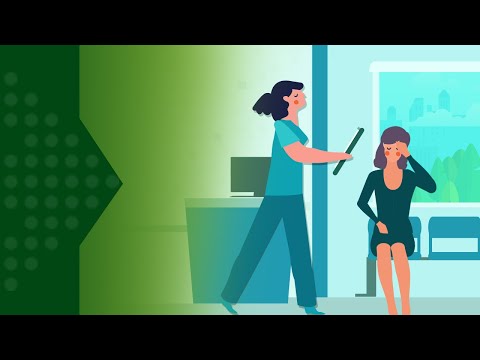What Does a Clinical Medical Assistant Do?
Contents [show]
A clinical medical assistant is a healthcare professional who works in a clinic or physician’s office. Their duties include taking patient medical histories, measuring vital signs, and assisting the physician with exams and procedures.
Checkout this video:
Job Description
The clinical medical assistant job description includes performing a variety of administrative and clinical tasks to support the day-to-day operations of a medical office. Clinical Medical assistants may be responsible for scheduling appointments, verifying insurance coverage, taking patient vital signs, preparing examination rooms, and assisting physicians with procedures. In some cases, clinical medical assistants may also be responsible for handling billing and coding tasks.
Duties and Responsibilities
A clinical medical assistant, or CMA, is a member of the allied health care team who work closely with physicians in outpatient facilities such as medical offices, clinics, and group practices. As a CMA, your duties and responsibilities will vary depending on the state in which you work, as well as the size and type of facility. However, there are some common duties and responsibilities that are typically expected of a CMA.
The specific duties and responsibilities of a CMA can be divided into three categories: administrative duties, clinical duties, and patient care duties.
Administrative Duties:
As a CMA, you will be responsible for performing a variety of administrative tasks in support of the physician or physicians you work with. These tasks can include scheduling appointments, maintaining medical records handling billing and insurance paperwork, and managing office supplies. In larger facilities, CMAs may also be responsible for supervising other office staff members such as nurses and receptionists.
Clinical Duties:
In addition to administrative tasks, CMAs are also responsible for a variety of clinical tasks. These tasks can include taking patient medical histories, performing basic physical exams, removing sutures and staples, administering injections and immunizations, conducting EKGs and urinalysis tests, collecting laboratory specimens, and instructing patients on how to properly take their medication. CMAs may also be responsible for sterilizing equipment and keeping exam rooms clean and organized.
Patient Care Duties:
Finally, CMAs are also responsible for providing direct patient care. This can include answering patient questions about their condition or treatment plan, providing emotional support to patients and their families during times of distress, assisting patients with ambulation or other activities of daily living as needed, transporting patients to other parts of the facility as needed, and participating in discharge planning activities.
Skills and Qualifications
Clinical medical assistants (CMAs) must have excellent communication skills. They often interact with patients who are stressed or in pain. They must be able to put patients at ease and explain procedures in layman’s terms. In addition, CMAs must have strong interpersonal skills. They work closely with doctors and nurses and must be able to take direction well. They also need to be able to work well under pressure, as medical offices can be fast-paced environments.
Organizational skills are important for CMAs, as they are often responsible for scheduling appointments and maintaining patient records. They may also need to handle billing and insurance paperwork. Therefore, it is important that CMAs be detail-oriented and have the ability to multitask.
In terms of qualifications, most employers require CMAs to have at least a high school diploma or equivalent. Some employers may prefer candidates who have completed a formal training program or have some prior experience in the medical field. However, many employers are willing to provide on-the-job training for the right candidate.
Education and Training
Clinical medical assistants are an important part of the healthcare team. They work closely with physicians and patients to provide quality care. They must be graduates of an accredited medical assistant program and must pass a national certification exam. Many states require certification in order to practice.
Salary and Job Outlook
The median salary for a clinical medical assistant was $32,480 in 2017, with the top earners making $46,590 or more and the lowest earners taking home $22,390 or less. The job outlook for this career is strong, with an expected 34% growth in positions between 2016 and 2026. This is much faster than the average for all occupations.
Career Paths
Medical assistants play a vital role in the healthcare industry. They are responsible for performing a variety of administrative and clinical tasks to support doctors and other medical professionals.
While their duties may vary depending on the size and type of medical facility they work in, clinical medical assistants typically perform some or all of the following tasks:
-Scheduling patients for appointments
-Taking and recording vital signs such as blood pressure and weight
-Preparing patients for examinations
-Assisting doctors during examinations
-Collecting and processing laboratory specimens
-Performing basic laboratory tests
-Instructing patients on taking medication and other self-care tasks
-Maintaining medical records
Certification
There are multiple ways to become a certified medical assistant, but most Frequently, medical assistants complete a postsecondary education program of at least one year. Some states require certification for all medical assistants, while others do not. Although not required, many employers prefer to hire certified medical assistants.
Certified medical assistants typically have completed a postsecondary education program of at least one year and have passed a standardized exam, such as the Certified Medical Assistant Exam administered by the American Association of Medical Assistants or the Registered Medical Assistant Exam administered by the American Medical Technologists.
Clinical Medical Assistants in the Healthcare Setting
Clinical medical assistants are a vital part of the healthcare system. They work alongside physicians, nurses, and other medical professionals to provide quality patient care.
The duties of a clinical medical assistant may vary depending on the type of healthcare facility they work in. However, there are some common tasks that they all perform. These include taking medical histories and recording vital signs, assisting with procedures and examinations, scheduling appointments, and handling paperwork.
Clinical medical assistants must be able to multitask and stay calm under pressure. They must also have excellent communication skills and be able to work well with others. If you are interested in becoming a clinical medical assistant, you will need to complete an accredited medical assistant program.
Clinical Medical Assistants and Patient Care
Clinical medical assistants work alongside physicians, nurses and other medical staff in outpatient care facilities, such as clinics and doctors’ offices. They are responsible for greeting patients, updating their Medical records scheduling appointments and tests, taking vitals signs and blood pressure readings, drawing blood, administering injections and other injections as well as providing patient education.
Becoming a clinical medical assistant requires completion of an accredited clinical medical assisting program. Some programs can be completed in as little as nine months, although most take about a year to complete. Once you have completed your training, you will be eligible to take the Certified Medical Assistant (CMA) exam administered by the American Association of Medical Assistants (AAMA).
Clinical Medical Assistants and Administrative Duties
Clinical medical assistants (CMAs) are medical professionals who support the work of physicians and other medical staff. They are responsible for a wide range of clinical and administrative duties, including taking patient histories, scheduling appointments, drawing blood, and administering medications.
In addition to their clinical duties, CMAs also perform a variety of administrative tasks, such as managing medical records filing insurance claims, and coding data. They may also be responsible for billing patients and collecting payments.
While most CMAs work in doctors’ offices or clinics, some may also work in hospitals or other healthcare settings. Many CMAs are certified by professional organizations, such as the American Association of Medical Assistants (AAMA) or the National Healthcareer Association (NHA).






